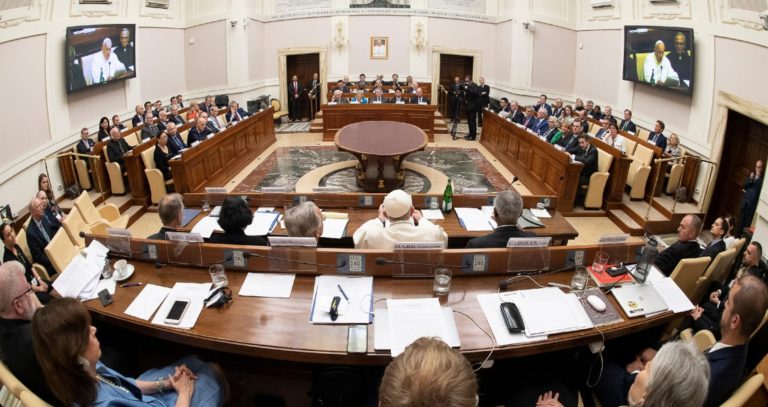Congress Should Pass the Palliative Care and Hospice Education and Training Act, by Wesley Smith
September 30, 2019Cardinal Sarah Reflects On the Meaning of the Priesthood, by Courtney Grogan
September 30, 2019
By Fr. George W. Rutler, Crisis Magazine, September 30, 2019
 Analytical psychology provided a virtually limitless opportunity for Carl Jung to play with the canonical vocabulary, expanding it to describe what he thought to be wider realms of human consciousness. An example of his creativity was his concept of Synchronizität. This “synchronicity” described what he perceived to be “meaningful coincidences,” by which he meant events that seem to have some sort of significant relationship even though they lack any apparent causal relationship. The more he considered this, the more he expanded his definitions.
Analytical psychology provided a virtually limitless opportunity for Carl Jung to play with the canonical vocabulary, expanding it to describe what he thought to be wider realms of human consciousness. An example of his creativity was his concept of Synchronizität. This “synchronicity” described what he perceived to be “meaningful coincidences,” by which he meant events that seem to have some sort of significant relationship even though they lack any apparent causal relationship. The more he considered this, the more he expanded his definitions.
Dr. Jung didn’t go beyond the limits of his own science to claim that God is involved in these phenomena, but others have. G.K. Chesterton called coincidences “spiritual puns.” There is a common instinct to attribute convenient phrases to Einstein, so it is not certain that he really did say, as is often claimed, that coincidences are God’s way of remaining anonymous. But many thinkers—an overplus of them Frenchmen, such as Anatole France and Théophile Gautier—have said almost the same thing.
Since I wrote a book on coincidences (which, with a lack of imagination, I called Coincidentally) I was neither surprised, nor did I fall to my knees, when I was informed that on the very same day that I published my most recent essay for Crisis on the Vatican’s use and misuse of adjectives, our Holy Father condemned the use of adjectives outright. ….







